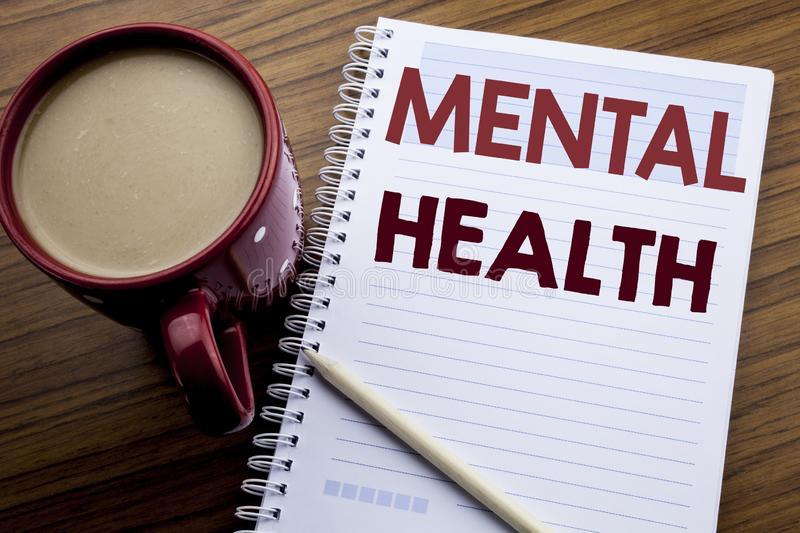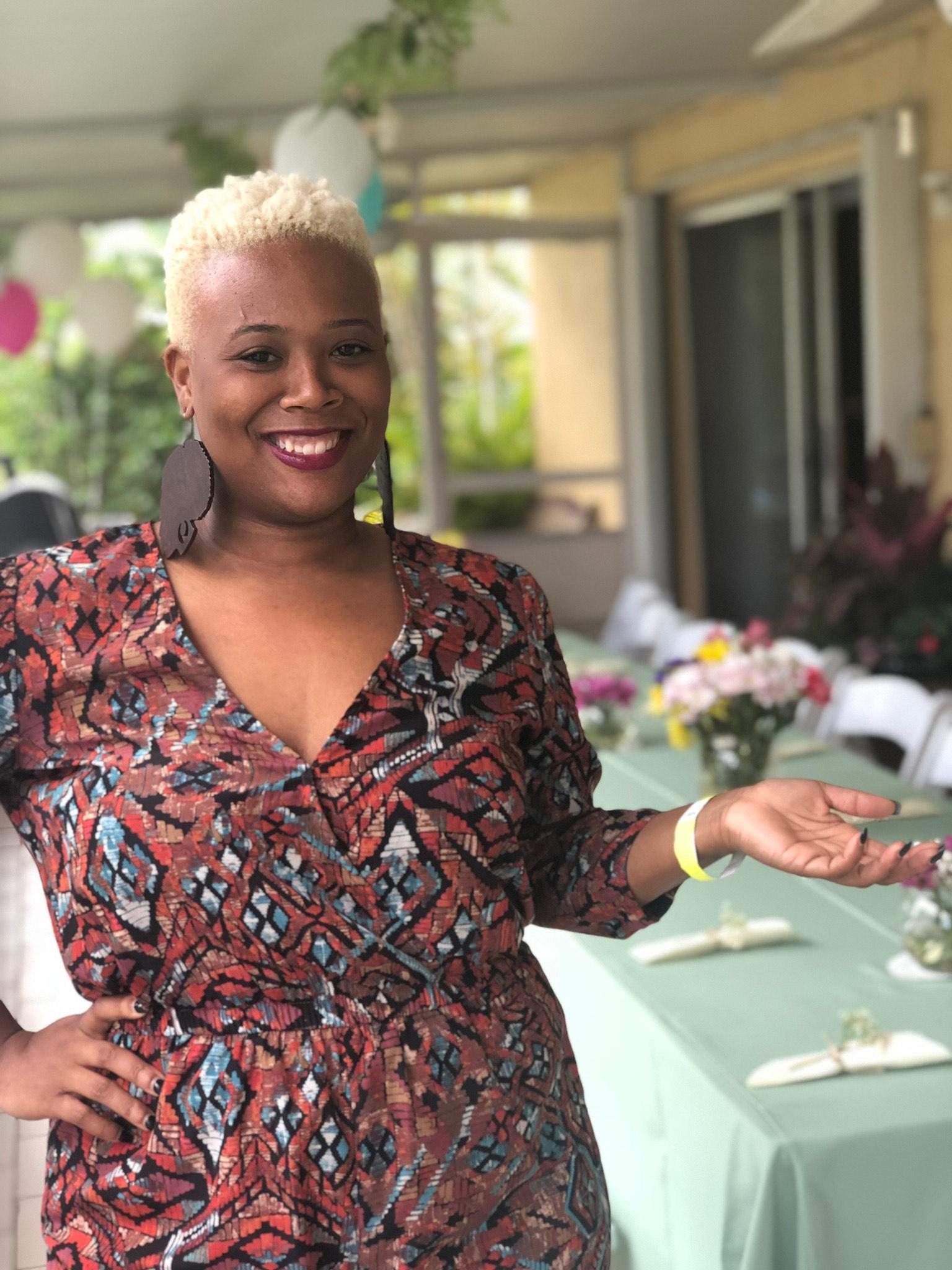ANXIETY & AMBITION: Successful, Degreed, And Dealing With Mental Illness

This article is part of our Anxiety and Ambition series where we explore the hardships and the emotional ambivalence of having anxiety while also wanting to achieve big goals.

One in five adults in the United States experience mental illness each year. It’s likely that someone in your group of friends (or one of their friends) is dealing with a diagnosed or undiagnosed mental disorder. For me, it is a friend of a friend. As I was working on this article, I asked friends and family members if they knew someone that was willing to share their journey with mental illness. A close friend of mine introduced me to her friend, Valerie.
Valerie Valcourt is successful by most interpretations of the term. She is educated. She earned her undergraduate degree in Family, Youth and Community Sciences and completed her master’s in Clinical Psychology in 2019. She’s an entrepreneur; she created a podcast with her husband, The JOB Project, that explores the intersectionality between mental health and the Christian faith.
Valerie also struggles with mental illness. In 2017, she was diagnosed with obsessive-compulsive disorder (OCD), anxiety and depression. Like many Black women, she was raised to be strong and independent. Valerie was raised in a two-parent Haitian household, where emotionality was not prized. As immigrants, Valerie’s parents worked hard to provide a good life for the family. Her mother is a doctor and Valerie describes her as “very independent.” She was taught to go against all odds. “Tiny issues” like anxiety and depression were not addressed in her childhood home.
However, through her struggles with mental illness Valerie has taken the proverbial Super Woman cape off. “It’s okay not to be okay,” she says. In addition to therapy, the realization and acceptance of not being everything for everybody has been instrumental in Valerie regaining a sense of self despite her diagnosis.
Her Agenda: You were diagnosed with Obsessive-Compulsive Disorder (OCD) in 2017. Let’s talk about what OCD is and symptoms of your diagnosis.
Valerie Valcourt: Most people have the wrong idea about what OCD is. They think it’s washing your hands multiple times or that things must be in order in a certain type of way. OCD is intrusive thoughts. It involves experiencing unwanted, unwarranted and constant irrational fears, anxiety and thoughts. As a result of that anxiety, people with this disorder engage in some type of compulsion behavior to help ease the anxiety. For me, its cleanliness. I deal with intrusive thoughts of feeling like dirt is on me. If I touch certain things, the residue or dirtiness is still lingering on me. A compulsion of mine is avoiding. I will avoid places that make me anxious. I live in New York City, so I struggle with taking the subway. When I did take the subway, I would have anxiety and panic attacks. I struggle with places that are antiquated and appear dirty. No matter how much you clean it, from wear and tear, it just appears dirty. I get very uncomfortable and tense in those environments.
Most people have the wrong idea about what OCD is. They think it’s washing your hands multiple times or that things must be in order in a certain type of way. OCD is intrusive thoughts.
Her Agenda: How did the diagnosis impact your day to day life?
Valerie Valcourt: I was in school full-time when I was diagnosed with OCD. I had internships and research assignments. Unfortunately, after being diagnosed, I did not continue my research assistantship. I stopped applying for things outside of school because it required that I take public transportation. The anxiety at that time was so massive and the anxiety attacks were so frequent, I literally could not take the train. [My anxiety] limited my options in terms of work and how often I could go out. I even struggled with gum spots on the sidewalk, so walking to the train took everything out of me. I decided to put all of my energy into school. As much as I wanted to pursue other things, I told myself that I needed to concentrate on school. At the time, focusing on anything else was emotionally exhausting. I had to understand my limitations. It’s okay to focus on one thing at a time. That’s all I could give at that time dealing with the symptoms of a mental illness.

It’s okay to focus on one thing at a time. That’s all I could give at that time dealing with the symptoms of a mental illness.
Her Agenda: You mentioned experiencing anxiety as a symptom of OCD. Have you experienced depression as well? How are these disorders linked?
Valerie Valcourt: Serotonin is a neurotransmitter in the brain that is highly linked to OCD, anxiety, and depression. People with these disorders have low serotonin levels. Often people who have OCD also have anxiety. The obsessive thoughts that occur in people with OCD cause anxiety. In turn, you create a compulsion that hopefully relieves the feeling of the anxiety. People with anxiety often experience depression. My depression did initially stem from my OCD because I felt so limited in where I could go and what I could do. I didn’t have a car and could not ride the train because of my diagnosis. As a result, I stayed home a lot. I felt l didn’t have a life. I wasn’t able to live life as I did before the diagnosis.
Her Agenda: Have OCD/anxiety/depression always been a part of your life or were the symptoms triggered by a life event?
Valerie Valcourt: I was diagnosed while in graduate school. However, once my symptoms were named by the diagnosis [as OCD], I realized I had been dealing with it for most of my life. I remember being a kid and feeling worried and anxious but not knowing what it was. I would get stomach cramps and have crying fits. When I got older, I dealt with bouts of depression that I didn’t recognize as depression at the time. For me, I learned the terms and retroactively looked at my life and realized I had been struggling with anxiety and OCD for a long time. Because my symptoms revolved around dirtiness, moving from Florida to NYC it was a huge trigger. The new environment exacerbated my symptoms. It was interfering with my ability to do things that usually came easy to me. I knew it was time to seek professional help.
I learned the terms and retroactively looked at my life and realized I had been struggling with anxiety and OCD for a long time.

Her Agenda: We’ve talked about your symptoms of OCD and what anxiety looks like in your life. How does depression look for you?
Valerie Valcourt: To be totally transparent, I’m currently in a state of depression. Initially, it was a lot of sadness. I’ve also realized that depression shows up as irritability for me. I can be triggered by tiny things. It’s typical to get upset if someone cuts you off in traffic, for example. I noticed that I would be angry for a long time at the simplest occurrences. I experience insomnia. I sleep but have really bad dreams. I wake up because I’m anxious from the dreams. My entire body tenses up. Sleeping is different now. I eat a lot. I used food as a coping mechanism. I get really tired, fatigue sets [in]. Some days I have no energy or motivation. Other days I’m anxious and have more energy because I need to get something done.
To be totally transparent, I’m currently in a state of depression.
Her Agenda: What tips can you share to help identify symptoms of a mental issue and coping mechanisms after the diagnosis?
Valeri Valcourt: Therapy can be tough to come by when you consider factors such as affordability, access, and time. If therapy is not an option, create habitual self-care practices. Do things that bring you joy but don’t require much mental energy. These are activities that you find enjoyment in that you can do mindlessly. It could be gardening or doodling in your favorite notebook. For me, I love to dance and exercise, so I take Zumba classes. I read a lot. Engrossing myself in a story provides an escape. Give yourself breaks. Hang with friends that give you lots of energy and that you can be vulnerable and transparent with. Find what works for you and consistently apply it. Another good practice is eating healthy. If you deal with anxiety, stay away from caffeine. Caffeine is a stimulant and heightens anxiety. Try to avoid processed food and refined sugars because they effect your body and hormones in ways that other foods may not. It’s important to keep your body and physiology as stable as possible so that you can focus on your mental health issues.
Social media has helped normalize conversations around mental illness. As women we are tackling everything from motherhood and relationships to pursuing degrees and managing our careers. Taking care of our mental health and being mindful of triggers should be top of mind. Sharing stories like Valerie’s humanizes the stigmas associated with depression, anxiety and other diagnosis. Like Valerie, pay attention to how different environments make you feel, step away from projects that make you feel overwhelmed and seek professional help when you feel that you need it.
Do you have a story or experience to contribute? Apply here to be a contributor and indicate in your application that you’d like to contribute to this series.






